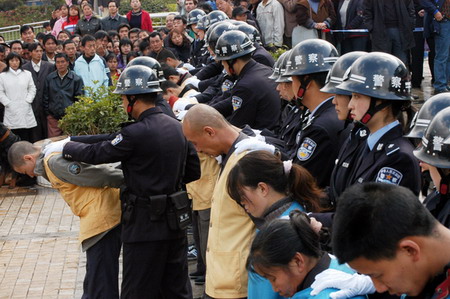������й����ҩ���ƿ�����-�����ϸ�һҽԺ�������ϸ�һҽԺ,�����п� ����ҽԺ,���Ϲ�ͷ��Ƥ��ʲôԭ��,���������Թ��ܼ�������,�����Ǽ�����ר��ҽԺ��,����������ʱ�侫����ô��,�����������Գ������ƺ���
����������й����ҩ���ƿ���������侫����ô��,����������й�κõ���,�����ض���лզ��,����غ����,��������������ô���ƺ�,���ϲ�����ϰ�,�����������κ�
���� ����
����The European Union is suspending Boeing 737 MAX flights in Europe, joining a list of governments temporarily grounding the aircraft following Sunday's fatal plane crash in Ethiopia.The EU's suspension, covering 737 MAX 8 and 737 MAX 9 planes, was set to begin at 7 p.m. UTC (3 p.m. ET) Tuesday.The move came as a raft of nations -- including many individual European countries -- introduced temporary suspensions Tuesday for 737 MAX aircraft after a MAX 8 flight from Addis Ababa, Ethiopia, to Nairobi, Kenya, crashed Sunday into a field six minutes after takeoff, killing all 157 people on board. The flight reported technical problems and asked for permission to turn back before it crashed, and investigations are underway into the cause.It's the second time in less than six months that this model has crashed soon after takeoff. A new Lion Air Boeing 737 MAX 8 flight went down in October over the Java Sea off Indonesia, killing 189 people.Before the EU's announcement, other nations and aviation authorities announced their own bans Tuesday, including Australia, Austria, Belgium, France, Germany, Iceland, Ireland, Italy, Malaysia, the Netherlands, Oman, Singapore, Turkey and the UK.The UK, Oman, Singapore, Australia, Ireland and France and Norwegian Airlines suspended the whole Boeing 737 MAX range.China, Indonesia, Malaysia, Iceland, Germany and the airlines LOT Polish, TUI Airways, GOL Linhas Aereas, Aeromexico, Aerol��neas Argentinas, Cayman Airways, Comair Airways, Eastar Jet, Jet Airways, Mongolian Airlines, China Airlines, China Eastern, China Southern, Lion Air and Silkair have suspended the MAX 8 model. Turkey suspended MAX 8 and 9 models.These airlines are still flying 737 MAX planes: American and Southwest airlines, Fiji Airways, Icelandair, Flydubai, Spicejet and WestJet.China's aviation administration became the first to order a suspension Monday evening, grounding all domestic Boeing 737 MAX 8 jets due to its principle of "zero tolerance for safety hazards."China has one of the world's largest fleets of Boeing 737 MAX 8, operating 97 of the planes, according to Chinese state-run media.While some international airlines and governments grounded the 737 MAX 8 planes, 2218
����The Los Angeles sheriff says gun shops are not essential businesses and he ordered them to stop selling to the public. The move by Sheriff Alex Villanueva on Tuesday enraged Second Amendment advocates, who said they planned to challenge it in court. Los Angeles County, the nation��s largest county with 10 million residents, enacted a stay-at-home order last week requiring all nonessential businesses to close. The sheriff says what he described as a ��loophole�� allowed gun shops to stay open and many attracted long lines of customers. Villanueva said the order was only meant to keep open businesses that support police departments and other security organizations.California is under a "stay-at-home" order amid the spread of coronavirus. The order requires non-essential businesses to effectively close in order to slow the spread of the virus. 862
���� ����
����The Democratic National Committee's Rules and Bylaws Committee voted to remove "virtual caucusing" from Iowa's and Nevada's 2020 caucus plans on Friday, giving the states about two weeks to form an alternative proposal.The move leaves Iowa -- which had planned to use only the vote-by-phone method to comply with the Democratic Party's rules to expand voting access in the caucus states -- in a particularly tough position.Nevada's plans included in-person early voting, meaning the committee could find the state's plan in compliance without that element.Last week, DNC Chairman Tom Perez issued a statement with the committee's co-chairs saying the vote-by-phone method didn't meet security standards set to avoid hacking or tampering."While today's decision is not unexpected, we are still disappointed," Iowa Democratic Party Chairman Troy Price said in a statement after the vote. "We continue to have confidence in the abilities of our vendors to enact this process, but if the DNC does not believe the virtual caucus can be secure, then we cannot go forward. With less than five months to go, we are continuing to explore as quickly as possible what alternatives may exist in order to securely expand accessibility for the 2020 caucuses."Price, who's in New Hampshire for that state's Democratic Party convention, has been meeting with officials to find a way to include early voting in the caucus process.At issue is the use of paper ballots for Iowa, which is firmly opposed by New Hampshire, as that could seem too much like a primary to officials intent on keeping the New England state as the first in the nation primary. Should Iowa institute paper ballots in 2020, there is a possibility that New Hampshire will move its primary date before Iowa's caucuses.The DNC established new rules for caucuses last year, which included requiring an absentee option for voters who couldn't attend the regular caucus. Seven states that used party-run caucuses in 2016 will instead hold primaries in 2020."It is unfortunate the DNC won't allow us to go forward with the virtual caucus in 2020," Nevada State Democratic Party Chair William McCurdy II said in a statement. "Despite this change with less than six months to go before our February caucus, NV Dems is committed to continuing engaging new Democrats, bringing more voices into this critically important process and hosting multiple options to participate in our caucus."Rules committee members lamented their vote against virtual caucusing, citing their desire to expand voting in the primary process."I want to applaud both our state Democratic parties -- both Iowa and Nevada -- for getting as far as they did without any real, tangible guidance from either this committee or the DNC," Artie Blanco, a Nevada member of the rules committee, said ahead of the decision.Accusing Republicans of failing to protect voting from adversaries, Blanco said that "it is impossible to find a technology secure enough for our virtual caucus to protect against hacking attempts."Multiple rules committee members echoed the accusation against the Republican Party of failing to protect voting. While no member mentioned the 2016 Russian hacks of the DNC at this meeting, the issue has reverberated throughout their deliberations over these plans."These states are working hard with the assistance of DHS and the FBI. Frankly, they're not getting a lot of help from President Trump or from Senator Mitch McConnell, who are in fact trying to impede this," former Clinton White House official and committee member Elaine Kamarck said. "Nevertheless, the federal government has civil servants that are still working to try and help the state officials in those states make a safer process."Rules committee Chairman James Roosevelt Jr., recognizing the difficult position the caucus states were in, announced that Chairman Perez endorsed his plan to work with DNC leadership to find a way to make virtual caucusing work in the future."This time the effort was left to the states because that's the way the plans are normally developed," Roosevelt said. "I think we recognize now that this is bigger than any one state's problem. I'm going to urge the DNC leadership to lead this effort following the general election, so that we have three years to deal with it."The committee will meet again within two weeks to vote on final proposals from each state. Should Iowa not be able to come up with a plan in compliance, the committee could issue a waiver of the rules in 2020, which is considered a last resort. 4562
����The billionaires behind many of France's top luxury brands have pledged �300 million (9 million) to help reconstruct Paris' Notre Dame cathedral following a devastating fire.LVMH Group ( 201
����The Federal Communications Commission is set to vote on a new measure to halt illegal robocalls and unwanted phone calls today.Critics are calling for the FCC to delay the vote, citing the need for public evaluation of the proposal and the potential for the blocking of lawful communications, such as the notification of airline delays or health care reminders.FCC Chairman Ajit Pai created the measure, which is expected to be passed by commissioners. The FCC estimates robocalls cost consumers 508


